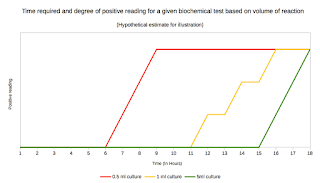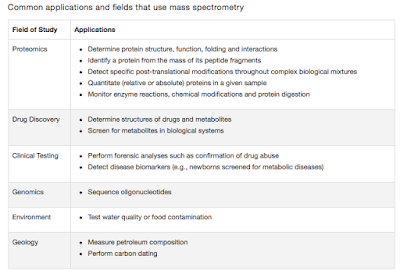Reincarnation of Koch Postulates
Hello,
 Lipkin WI (2009). Microbe hunting in the 21st century. Proceedings of the National Academy of Sciences of the United States of America, 106 (1), 6-7 PMID: 19118201
Lipkin WI (2009). Microbe hunting in the 21st century. Proceedings of the National Academy of Sciences of the United States of America, 106 (1), 6-7 PMID: 19118201
Further Reading:
2. Stanley Falkow. Molecular Koch's postulates applied to bacterial pathogenicity — a personal recollection 15 years later. January 2004, Nature Reviews Microbiology 2, 67-72. (Link)
Recently i was reading the book, "On the shoulder of giants" by Stephen Hawking. The basic idea what the title implies is that the newer discoveries are based on something phenomenal in past. So, i recollected, it has been a long time since i have last written a topic of basic interest. Something at the grass root level. And when i was just thinking about this, i was reminded about Robert Koch.
 |
| Photo: Robert Koch |
Am not going to spend time here talking about his achievements or his life history. If you are interested in his biography please go here Rather, i want to discuss a few aspects on the most famous concept in history of microbiology referred as "Koch postulates".
The basic ideology of the postulates is in context to identify the causative organism in an infectious disease. Based on personal experience and a really good scientific evidence R Koch defined 4 steps in this basic principle. The 4 steps were association, isolation, inoculation and re-isolation. Thats all!!!
Am reminded of a phenomenal law that holds true to date- "Occam's razor". The principle holds that when there are several competing theories, each equally competent of explaining a well documented phenomenon (Or i should rather say observed phenomenon), the simplest of the explanation is more likely to be the correct explanation. If u can see the meaning of what i mean to say here, you well see why am i saying this. The simplicity of the postulates, hence provide the likeliest explanation of pathogen.
The Koch postulates reads so:
1. Similar (Here referring to a species) pathogen must be consistently associated with the disease.
2. The pathogen should be grown as a pure culture in a way that its character be described.
3. When the isolated pathogen in pure form is injected to a healthy host, all the symptoms and signs of infection be reproduced
4. It should be possible to re isolate the pathogen from the lesions and grow them in pure as said in step 2
This was a fantastic explanation in the early days of microbiology and a terrific lot of organisms were indeed proved to be the causative agent. But, as always biology meets an exception. The 1st step is violated by many viruses, such as pox virus in which less than 1% of the infection is actually clinically apparent. The postulate failed to support discovery of those pathogens which cannot be grown in pure form in laboratory, a blow to the 2nd step. Coxiella burnetii, is the causative agent of human Q (Query) fever for long period of time without ever having attested to the principle of Koch. Of course now we know how to cultivate them (Link) in pure. Certain pathogens maybe grown in pure culture but the 3rd step is not possible when humans are the only host. (Ethical considerations). Koch himself was well aware of these limitations. You see we play around a bit.
In a classic paper by D N Fredericks and D A Relman (Link), a thorough discussion was presented on why we need to reconsider Koch postulates and come up with a few modifications. With more and more molecular biology techniques, the traditional pure culture and identification seems to fail in upholding the original postulates. This probably led to more sophisticated to what we know as "Molecular Koch postulates".
The Molecular Koch Postulates can be laid as follows:
(Taken from textbook of Microbiology- Lansingng M. Prescott; 5th Ed. ISBn: 0-07-282905-2)
1. The virulence trait under study should be associated much more with pathogenic strains of the species than with nonpathogenic strains.
2. Inactivation of the gene or genes associated with the suspected virulence trait should substantially decrease pathogenicity.
3. Replacement of the mutated gene with the normal wild-type gene should fully restore pathogenicity.
4. The gene should be expressed at some point during the infection and disease process.
5. Antibodies or immune system cells directed against the gene products should protect the host.
 |
| Table 1: Molecular Koch postulates (Source) |
But then people argue, are we deviating from the classic microbiology. What i would like to say is "No". Just take a look. The molecular postulates are just a derivation of original condensed and redesigned to molecular level. And thats why i say, "We still stand on the shoulder of giants."
Further Reading:
1. D N Fredericks and D A Relman. Sequence-Based Identification of Microbial Pathogens: a Reconsideration of Koch’s Postulates. CLINICAL MICROBIOLOGY REVIEWS, Jan. 1996, p. 18–33 (Link)
2. Stanley Falkow. Molecular Koch's postulates applied to bacterial pathogenicity — a personal recollection 15 years later. January 2004, Nature Reviews Microbiology 2, 67-72. (Link)





Comments
Post a Comment